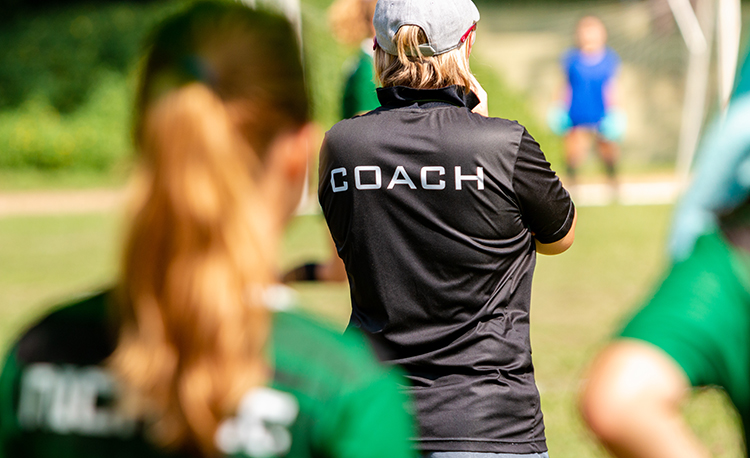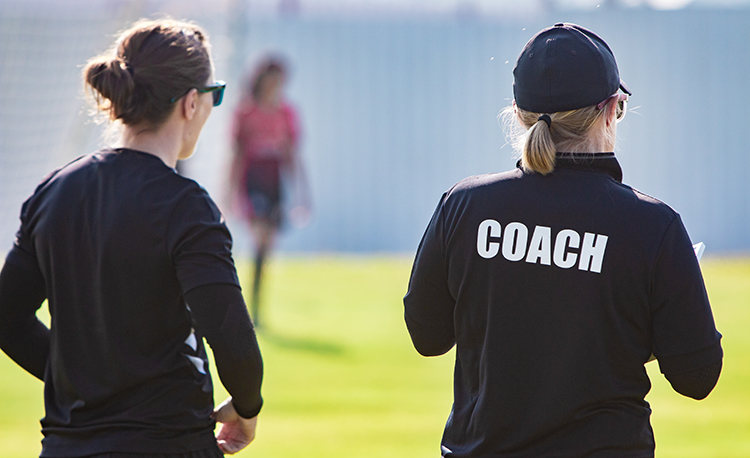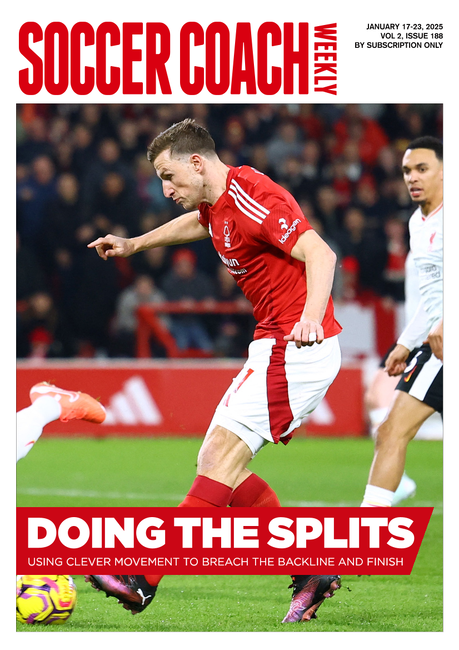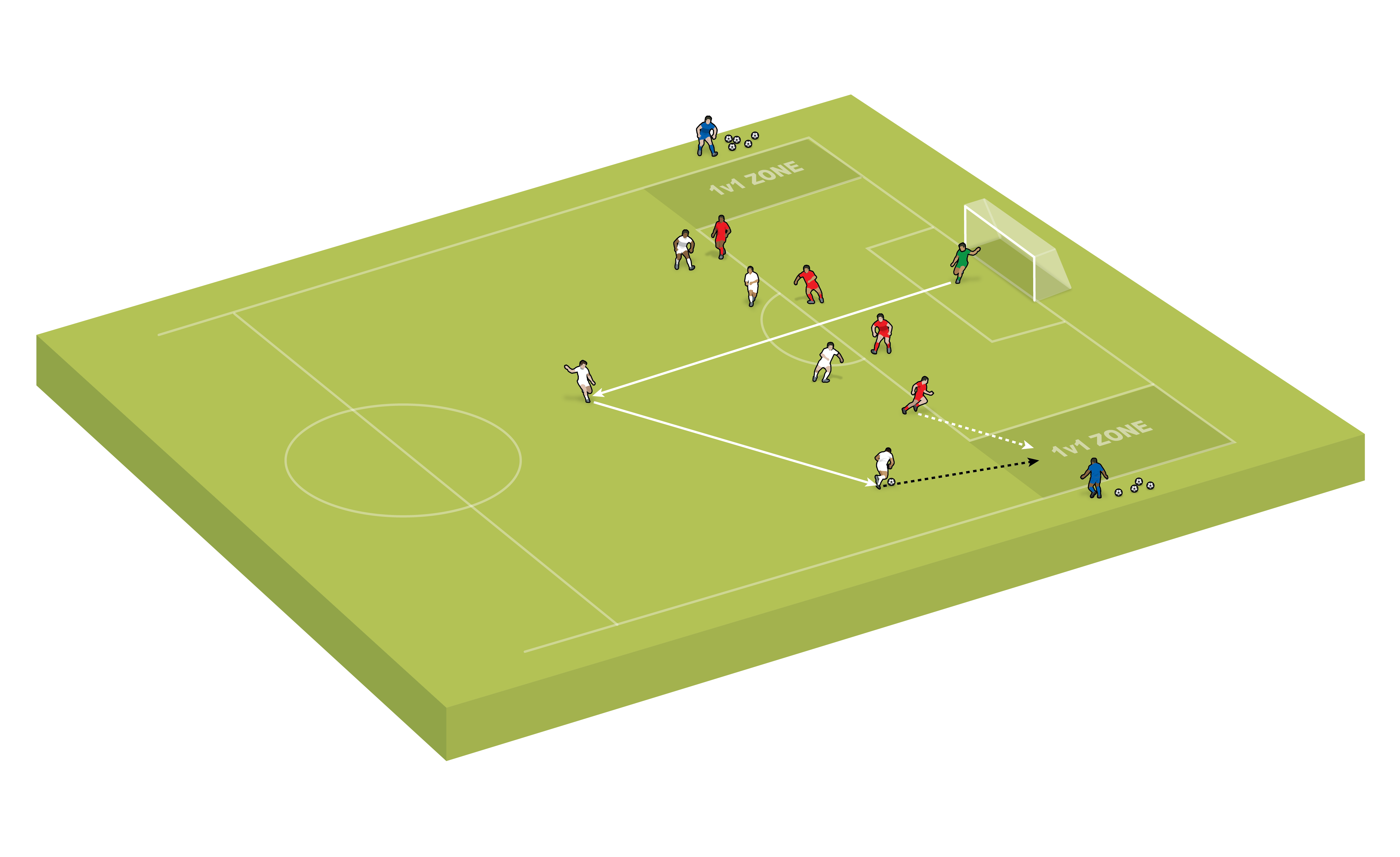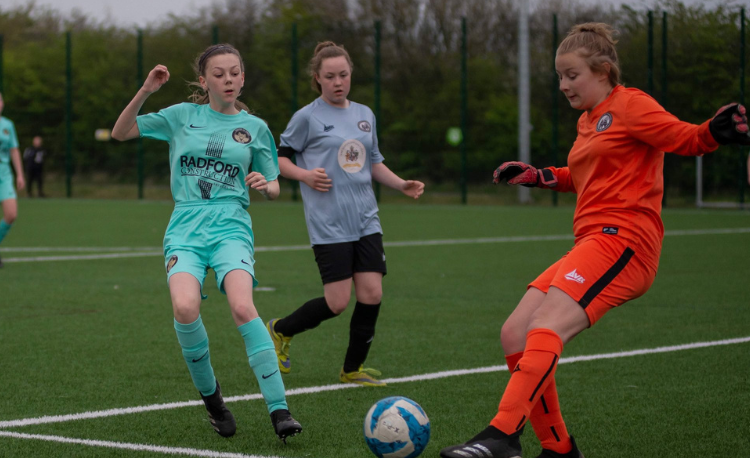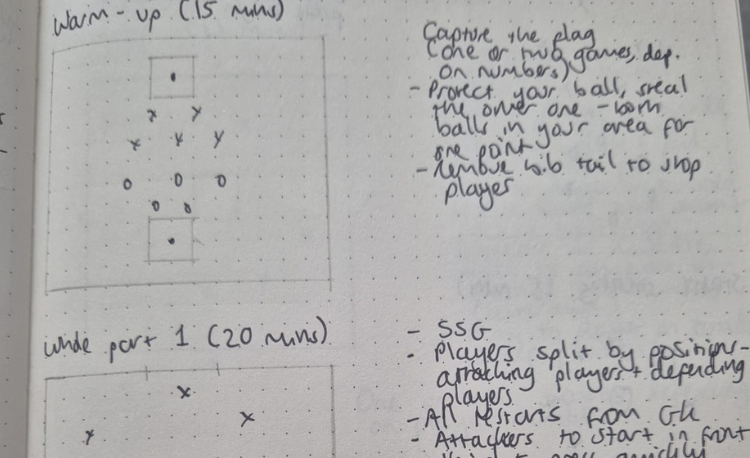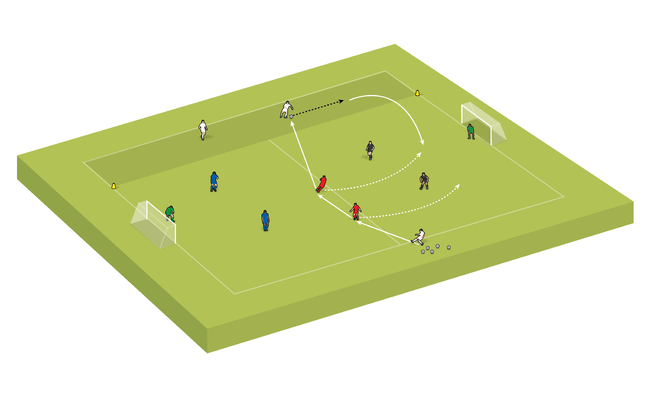Get the best from a coaching observer
Reflection is vital if we want to improve, but it is hard to judge our own abilities. Seeking an alternative perspective from another coach can help
Having another coach watch you and then offer feedback can help take your coaching to the next level.
Here are some tips to get the best out of the experience and make them focused, less invasive and ultimately productive.
Choose your observer carefully
Think about who you want observing you.
It could be another coach in your club whose style you like, someone from elsewhere who you admire, or even a coach whose methods are completely different to yours, but who could help you identify things you haven’t thought about.
Start by thinking about what you want from the experience, and match that to the ideal candidate.
Set a clear agenda
Before the observed session, set out a clear agenda with some questions you feel you need to answer.
It should be the focus of what you are working on. For example, you might think you need to improve your ball-rolling time, or how much technical advice you give players.
For the former, you may want the observer to ask: ‘Did the players spend more time playing than they did being talked to?’.
"Think about who you want observing you and what you want from the experience..."
You could also ask your observer to keep accurate track of your ball-rolling time with a stopwatch.
In terms of the technical advice, you might want the observer to ask: ‘How do you feel about the language you used? Was there a lot of jargon, or language appropriate to the age and level of your players?’.
Give these questions to the observer so they can ask you them.
Consider when the feedback will be delivered
Are you going to speak immediately after your session? Will you meet the next day to chat? Settle on a time that works for both you and the observer.
A combination of both might be best – initial feedback straight after the session so it is fresh in the mind, and a follow-up chat once both parties have had time to reflect.
Tell your players what is going on
It can be quite unnerving for players to see an unknown person show up to their session!
If the observer is someone your players are not used to seeing, tell them who they are and what they are doing, emphasising there is no added pressure on the players.
Say thank you first
To ensure that you and your observer are working as equals, the observation and feedback process must be seen as a positive experience.
You aren’t passing an exam or ticking boxes for competency. You, and the observer, are learning and developing together.
The observer will also gain insight into their own coaching because, inevitably, they will be thinking about how they would deal with each situation. That’s an important reflection in itself.
However, it is not a straightforward task to be open and honest while being positive and non-judgmental when you are feeding back.
So before the session starts, and then again before the feedback begins, the observed coach should say ’thank you’. It will put the observer at ease as much as the recipient.
Don’t make any excuses
Commit to not offering any excuses about your performance during the feedback process.
Rather, offer suggestions and explanations about why you made a decision where appropriate.
Excuses are a means of passing the blame onto an external condition. For example, you could say that a drill didn’t work because the players were being lazy.
The mature response would be: “I need to ensure the players are more focused”. Or: “Next time, I will think more about how the players were acting before introducing that drill”.
In other words: which of your actions could you change?
Be prepared for questions
In addition to the questions you have set, the observer will generate some questions of their own. These questions should be more general than the ones you have prepared for them.
Rather than starting with the word ’why?’, which can often lead to judgmental statements, the observer should be encouraged to start questions with phrases like ‘How do you feel...?’. This puts the emphasis back on the coach to put across their viewpoint.
"Embrace being observed. It will make a difference to the way you coach..."
For example, rather than saying something like: ‘Why did you deal with this scenario like that?’, the observer can phrase it as follows: ‘How do you feel you dealt with this scenario?’.
Some other questions from the observer could include:
- What would you do the same or differently next time?
- What do you feel the impact of that decision/drill/activity was?
- Do you feel the session matched up to your initial outcomes?
Ask your own questions
The chat with your observer should be an open discussion.
You should feel empowered to ask them questions, in the same non-judgemental manner that they have asked you.
Questions like “Was that a good session?” or "Did the players enjoy it?” won’t be helpful. Instead, try questions that ask for low-grade outcomes.
For example, ask: “Did I repeat the phrase ‘You know what I mean’?", or “Did I manage to unfold my arms when I gave feedback?”.
Never disagree
Should the observer say something you don’t agree with, never say so.
The whole process should be between you and the observer. Nothing will be passed on to anyone else.
If you disagree with a point, you should do one of two things. Either Ignore it because you don’t think it makes a difference, or store it because it might be something you need to consider in the future.
Remember, in the same way that what you think of your own performance is subjective, so is what the observer thinks.
Their feedback and advice should be taken as something to reflect on, not as hard facts about your performance. And if you say you disagree, then that only makes the process that little bit more uncomfortable.
Embrace it
Embrace being observed. It will make an enormous difference to the way you coach if you can verbalise your thoughts to another coach.
The more observation becomes a natural part of any session, the more comfortable everyone becomes, and the more we improve as coaches.
Related Files
Newsletter Sign Up
Coaches Testimonials

Gerald Kearney, Downtown Las Vegas Soccer Club

Paul Butler, Florida, USA

Rick Shields, Springboro, USA

Tony Green, Pierrefonds Titans, Quebec, Canada
Subscribe Today
Discover the simple way to become a more effective, more successful soccer coach
In a recent survey 89% of subscribers said Soccer Coach Weekly makes them more confident, 91% said Soccer Coach Weekly makes them a more effective coach and 93% said Soccer Coach Weekly makes them more inspired.
*includes 3 coaching manuals
Get Weekly Inspiration
All the latest techniques and approaches
Soccer Coach Weekly offers proven and easy to use soccer drills, coaching sessions, practice plans, small-sided games, warm-ups, training tips and advice.
We've been at the cutting edge of soccer coaching since we launched in 2007, creating resources for the grassroots youth coach, following best practice from around the world and insights from the professional game.
